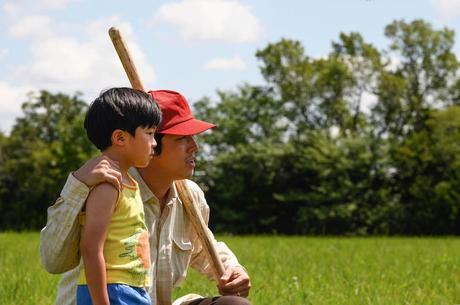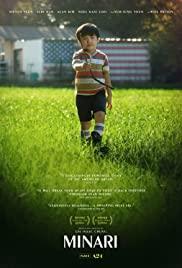

With his duly award-winning new feature "Minari", filmmaker Lee Isaac Chung has delivered one of 2020's quintessentially American stories. Based on his own childhood experiences, it follows a Korean-American family as they settle into their new home in Arkansas. At once a classic and undeniably contemporary immigrant drama, this special film is a touchingly empathetic piece of storytelling.
Indeed, while its 1980s setting and Korean characters point towards more recent waves of immigration, the opening scenes of "Minari" harken back to the first settlers on the American frontier. As the Yi family make their way towards their new land in the middle of nowhere, the promise of a vast land of plenty awaits. Adapting Western iconography, however, the iconic horse-drawn wagons and homesteads are replaced by a family sedan, moving truck and mobile home. Having abandoned the city life of their previous LA abode, the family's patriarch Jacob (Steven Yuen) has big dreams for his new farmland. But this modest small town life may prove to be too much of a culture shock for his wife (played by Han Ye-ri) and their two young children.
The American Dream indeed looks different for each family, all of whom fall on various spectrums of American assimilation. With his desire to build a thriving farm of Korean produce, Jacob is the model of the traditional economic migrant. He clings to his culture while forging an optimistic future through hard work, discipline and sacrifice. The rest of his family, however, are more inclined towards the immediate comforts of a more urban lifestyle.
The tensions between their viewpoints is what propels Chung's wonderfully humane script, illuminated through fully realized performances from the cast. The partnership and understanding subtly conveyed by Yuen and Ye-ri for example, makes their widening rift all the more heartbreaking. Meanwhile, the inversely burgeoning relationship between David and his newly arrived grandmother becomes the heart of the film.
With easily the year's most adorable child performance so far, Chung uses his surrogate David (played by Alan Kim) to explore both the humor and poignancy of growing up as a confused first generation immigrant. As he inbibes his "mountain water" (i.e. Mountain Dew), he laments the fact that Soon-ja (Youn Yuh-jung) is not a "real grandmother" who cooks and bakes cookies. But before long, they become the best of friends, with their scenes together providing some of the film's most heartrending emotions.
Though its sunny photography and largely welcoming community - a major relief considering rural red state setting - may fool you into thinking otherwise, the Yi family will face their share of struggles. But what "Minari" beautifully portrays is how family and friendship can enrich the simplest ways of life, where a weekly church service represents the only significant social activity. In its unique way, "Minari" therefore celebrates the often underappreciated shared humanity between the immigrant experience and small town America.
